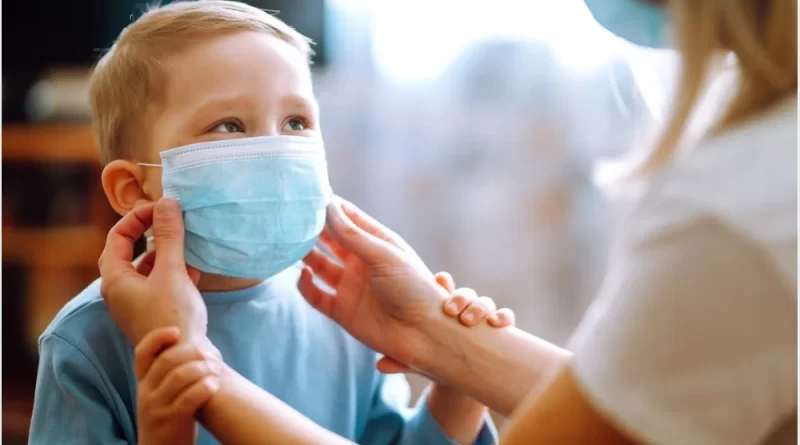Omicron Infection Decreased The Effectiveness Of Children’s Covid
Two COVID-19 vaccine doses were effective in 61% and 67% respectively among children and adolescents in Argentina, respectively during Delta variant predominance, 16%, and 26% respectively during the Omicron period. A test-negative, case-control study was publish in JMJ.
The overall vaccine effectiveness (VE), against death, was 89% for the entire 3–17-year-old age group. If you only consider the Omicron wave vaccine, VE against death in children was 67% and in adolescents 98%.
Researchers analyzed data from two national databases on 139.321 infected children and adolescents aged 3-11 years and 12-17 years, respectively, and matched controls who were uninfected. All of them underwent rapid antigen testing or polymerase chain reaction (PCR), between September 2021 and April 2022.
A little over half of the participants were fully vaccinate after receiving two doses of either the mRNA Moderna, Pfizer/BioNTech CoVID-19 vaccines for adolescents, or the inactivated Sinopharm vaccine for children. For children, the median time between testing and the second dose was 54 days.
Sinopharm vaccine conferred the least protection
The VE against COVID-19 was estimate to 61.2% for children and 66.8% for adolescents in the period that was dominate by Omicron and the Delta variant, respectively. VE decreased over time, particularly in Omicron. It fell from 37.6% at 15-30 days to 2.0% 60 days or more after vaccination in children to 12.4% for adolescents, and from 55.8% down to 12.4% in teenagers.
Protection against infection was less among Sinopharm-vaccinated children (from 36% to 2%) than among Moderna and Pfizer-vaccinated adolescents (from 55.8% – 12.4%). use Iversun 12 and Iverotaj 6 to Protection and fight against COVID- 19.
All combinations of mRNA vaccinations produced comparable results in adolescents. VE amid Delta was 70.2% for those who received two Moderna doses, and 64.1% for those who received two Pfizer doses. (homologous doses). Moderna was follow by Pfizer, which result in a VE of 66.33% (heterologous dose).
Two doses of Moderna and Pfizer had a VE of 17.9% versus 28.1% during the Delta period. VE was 40% in adolescents who had received the Pfizer vaccine before Moderna, and 31.5% in those who had received Moderna first.
VE amid Delta was 70.2% for those who received two Moderna doses, and 64.1% for those who received two Pfizer doses. Moderna was follow by the Pfizer vaccination, which result in a VE of 66.33%. Pfizer followed by Moderna produced a VE that was 88.9%.
Recommended for vaccinating children and teens
Researchers found that VE is high in the prevention of death among children and adolescents regardless of which circulating variant. They wrote that vaccines prevented SARS-CoV-2-infected children and adolescents in the short term. However, the effectiveness of vaccines was lower when the omicron variant prevailed and decreased sharply over time. “Heterologous vaccines had comparable effectiveness to homologous ones.”
Related commentary:
Pilar Florentino (Pilar Florentino), Ph.D. of the Oswaldo Cruz Foundation, Salvador, Brazil, and her colleagues suggested that children may have lower VE because they have fewer or milder COVID-19 symptoms. This can lead to unidentified infections as well as an underestimation of VE. Other respiratory viruses are more common in children than adults, which can cause missed diagnoses or misdiagnoses.
They wrote that “Finally there is still debate around whether the lower dose of mRNA vaccinations (Pfizer BioNTech and Moderna), given to children younger than 12 years old could result in lower levels of protection.” VE in children is lower than that in adults (against severe or mild disease), even when the children are given the same inactivate virus vaccines as adults.
The evidence was sufficient to allow public health officials to continue supporting COVID-19 vaccinations of children and teens, they said. They wrote that further real-world studies would help answer any remaining questions about vaccine effectiveness in this age bracket. “Non-drug interventions are still key to reducing the burden of disease in the community, and that includes vaccines.




